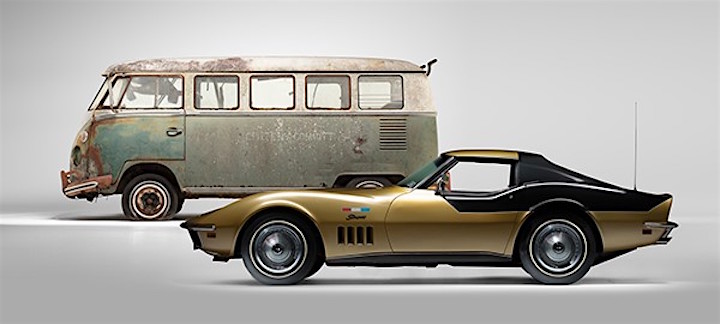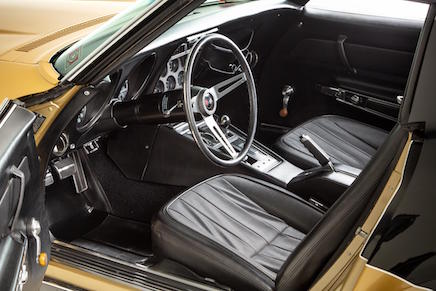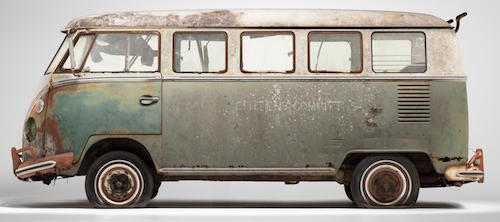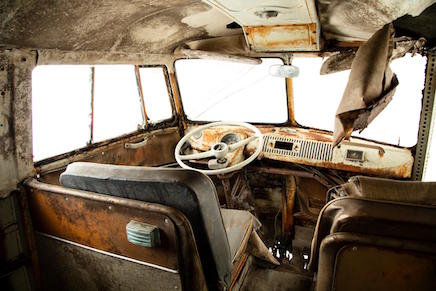Fifth annual Cars at the Capital exhibition features 1960’s automobile culture

(August 1, 2019) WASHINGTON, D.C. — An out of this world experience from Sept. 12 – 26 will feature two historically significant vehicles: Sept. 12 –19 — Apollo 12 Astronaut Alan Bean’s 1969 Chevrolet Corvette Stingray; Sept. 20 – 26 1966 — Volkswagen Deluxe Station Wagon owned by Esau and Janie B. Jenkins.
Each will be a part of the Historic Vehicle Association (HVA) Cars at the Capital exhibition on the National Mall in Washington D.C.
Displayed in the HVA glass enclosure on the walkway between the Smithsonian National Air & Space Museum and the National Gallery of Art in Washington, DC, the exhibition is free to the public.
These historically significant vehicles are privately owned and are being commemorated and recorded as part of the HVA’s National Historic Vehicle Register program, in partnership with the U.S. Department of the Interior’s Historic American Engineering Record (HAER) to be permanently archived in the Library of Congress.
Apollo 12 Astronaut Alan Bean’s 1969 Chevrolet Corvette Stingray
Starting in 1961, General Motors offered a program to all astronauts — lease a Chevrolet Corvette for $1/year. Each would come from a former Indy 500 winner and GM dealer, Jim Rathmann, who owned a dealership close to the Space Center in Florida.
 The fourth human to walk on the moon, Bean, the Apollo 12 Lunar Module Pilot in 1969, took part in the lease program. Along with his colleagues (all of which had a hand in designing the color scheme) Bean, Pete Conrad, Mission Commander; and Dick Gordon, Command Module Pilot, chose a gold and black color combination. On the front left fender of each car was a red, white and blue plaque, in each square were: LMP, CDR and CMP, to stand for the positions they held on the mission.
The fourth human to walk on the moon, Bean, the Apollo 12 Lunar Module Pilot in 1969, took part in the lease program. Along with his colleagues (all of which had a hand in designing the color scheme) Bean, Pete Conrad, Mission Commander; and Dick Gordon, Command Module Pilot, chose a gold and black color combination. On the front left fender of each car was a red, white and blue plaque, in each square were: LMP, CDR and CMP, to stand for the positions they held on the mission.
 The Corvette won a Top Flight award (with more than 97 points) at the 2002 National Corvette Restorers Society (NCRS) National Meet, and in 2003 won the coveted Duntov Award of Excellence at the NCRS Nationals. In 2008, the car also won the NCRS American Heritage Award "for the preservation of a historically significant piece of Corvette history" at the NCRS Nationals, making it the only Corvette in history to win both Duntov and Heritage awards. To date, the car has just over 35,000 original miles on its odometer.
The Corvette won a Top Flight award (with more than 97 points) at the 2002 National Corvette Restorers Society (NCRS) National Meet, and in 2003 won the coveted Duntov Award of Excellence at the NCRS Nationals. In 2008, the car also won the NCRS American Heritage Award "for the preservation of a historically significant piece of Corvette history" at the NCRS Nationals, making it the only Corvette in history to win both Duntov and Heritage awards. To date, the car has just over 35,000 original miles on its odometer.
Of the three custom-ordered 390-hp, 427 Stingray coupes, only the Corvette formerly owned by Alan Bean survives. The current owner, Danny Reed, has owned the car for 48 years.
1966 Volkswagen Deluxe Station Wagon owned by Esau and Janie B. Jenkins
Esau and Janie B. Jenkins were pioneers before and during the civil rights movement. As business owners, community organizers, and founders of organizations and institutions, together they dedicated their lives to providing opportunities, and hope, to the people of Johns Island, South Carolina, and beyond.
 In the 1940’s, using money from farming and selling produce, they would purchase buses to transport children to school and workers to jobs in Charleston, SC. During the bus rides, Esau and Janie B. would teach their adult passengers the information needed to pass the literacy exam so they could become registered voters.
In the 1940’s, using money from farming and selling produce, they would purchase buses to transport children to school and workers to jobs in Charleston, SC. During the bus rides, Esau and Janie B. would teach their adult passengers the information needed to pass the literacy exam so they could become registered voters.
Along with others, they were responsible for The Progressive Club, a co-op started in 1948 that provided community programs such as legal and financial assistance, child and adult education, and community  workshops. The building housed a grocery store, gas station, community center, meeting and classroom space. Leaders including Dr. Martin Luther King, Jr., and others, participated in workshops and community meetings there.
workshops. The building housed a grocery store, gas station, community center, meeting and classroom space. Leaders including Dr. Martin Luther King, Jr., and others, participated in workshops and community meetings there.
Their 1966 Volkswagen was an icon throughout their community and throughout the South. On the back hatch of the microbus was painted the infamous saying of Mr. Esau: “Love is Progress, Hate is Expensive.” In 2014 the family donated the back hatch, along with the engine cover, to the Smithsonian National Museum of African American History and Culture in Washington, DC where it remains on permanent exhibit.
“The automobile has left an indelible mark on our history and we believe America’s automotive heritage should never be lost nor forgotten,” said Diane Parker, Vice President of the Historic Vehicle Association. “To support our beliefs, we’ve made it our mission to document and share America’s automotive heritage by telling the human-interest stories behind the horsepower, and ensure their histories are captured in perpetuity.”
